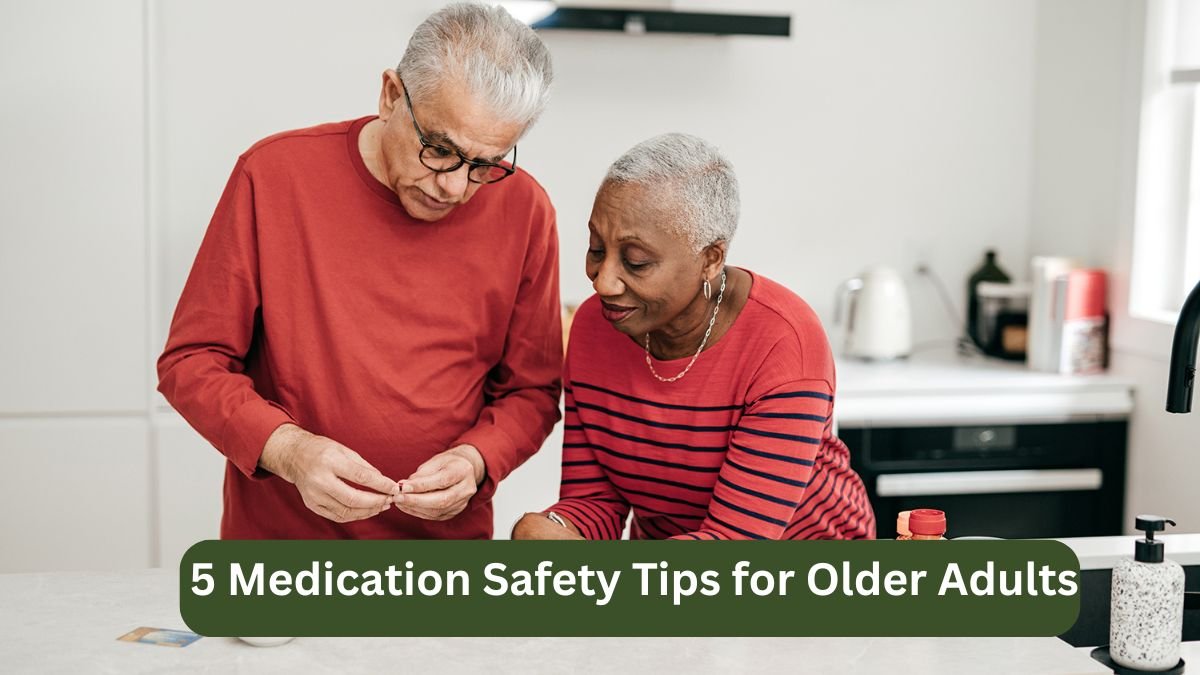Proper and safe medication use is crucial for the elderly. The body’s sensitivity to medications increases with age, and sometimes, the wrong dosage, wrong time, or wrong combination of medications can cause serious health problems. Therefore, it’s crucial to educate the elderly about safe medication use.
In this blog, we’ll explain 10 important points on how the elderly can safely and correctly use medications.
Don’t take medication without consulting a doctor
Often, the elderly resort to self-administering home remedies for chronic pain or illness. This poses a significant risk. Taking medication without a doctor’s advice can lead to serious side effects.
- Always consult a doctor before taking a new medication.
- Never use an old medication for a new symptom.
- Give your doctor your complete medication list to ensure no drug interactions occur.
Tip: It’s always safe to consult a doctor before taking any OTC (over-the-counter) medication.
Take medications at the right time
Medications are effective only when taken at the right time. Forgetting to take medication is a common problem among the elderly.
- Take medications as directed by your doctor, whether morning, afternoon, or night.
- If you miss a dose, don’t double your dose.
- Use an alarm or reminder to take your medication.
Tip: Set an alarm on your mobile phone or watch. This will help you develop a habit of taking your medication.
Keep medications in a safe place
Storing medications properly is also crucial. Storing them at the wrong temperature or in the wrong place can reduce their quality and effectiveness.
- Keep medications out of the reach of children and pets.
- Do not store medications in a humid or hot area.
- If there are storage instructions on the medication package, follow them.
Tip: Keep medications away from humid areas, such as the kitchen or bathroom.
Understand Medication Dosage
Every medication has a different dosage and should be taken in the correct amount. Elderly people often increase or decrease their dosage.
- Always follow the dosage prescribed by your doctor.
- Avoid increasing or decreasing any medication arbitrarily.
- If you have any doubts about the dosage, ask your pharmacist or doctor.
Tip: Carefully read the “Dosage Instructions” on the medication packaging.
Know the Right Medication Combination
Older people often take multiple medications at the same time. Combining certain medications can be dangerous.
- Before starting any new medication, tell your doctor what other medications you are taking.
- Vitamins and supplements can also affect the effectiveness of medications.
- Beware of substances that may increase or decrease the effectiveness of medications.
Tip: Always ask your doctor or pharmacist about drug interactions.
Be mindful of food intake while taking medication
Some medications need to be taken with food, while others should be taken on an empty stomach.
- Medications meant to be taken with food should be taken immediately after eating.
- Medications meant to be taken on an empty stomach, as directed by your doctor, should be taken before meals or as soon as you wake up in the morning.
- Alcohol and excessive caffeine can alter the effectiveness of medications.
Tip: Eating the right kind of food with medication makes it more effective.
Pay attention to the expiration date of medication
Taking expired medication can be harmful to health.
- Always check the expiration date of medication.
- Promptly dispose of expired medication safely.
- If the color, taste, or smell of a medication has changed, never take it.
Tip: Keep the medication in its original packaging to remember the expiration date.
Develop a habit of taking medication
It is very important for the elderly to develop a habit of taking medications regularly.
- Create a medication schedule.
- Note down your medication every day.
- Share medication reminders with family or caregivers.
Tip: Create a medication chart and post it on the refrigerator or medicine cabinet.
Recognize the side effects of any medication
Every medication has potential side effects. These effects can be more severe in older adults.
- Contact your doctor immediately if you experience symptoms such as dizziness, fatigue, vomiting, or allergic reactions.
- Note any changes in your health after starting any new medication.
- Do not discontinue the medication without consulting your doctor if you notice any side effects.
Tip: Get a list of potential side effects from your doctor or pharmacist.
Get regular health checkups
Regular checkups are important while taking medication to monitor its effectiveness and your health.
- Get regular checkups for blood pressure, sugar, and liver/kidney function.
- Have your medication reviewed by your doctor every three to six months.
- Medications may need to be adjusted based on your chronic conditions.
Tip: Always keep your doctor updated with your test reports and medication list.
Conclusion
Safe medication use is crucial for the elderly’s quality of life and health. Taking medication at the right time, adhering to dosages, and understanding medication safety and side effects are essential. By following the 10 points above, the elderly can not only protect their health but also avoid medication side effects.
